- Targeted and compounding traffic. SEO can attract the right visitors who are likely to become customers. SEO content continues to draw traffic over time, leading to steady growth.
- Connects with buyers at every stage. SEO helps you reach people at different points in their buying process, from just browsing to making a purchase.
- Boosts your visibility, and lowers your competitors’. Improving your search rankings makes it harder for your competitors to be seen. Your success in SEO directly impacts their visibility, giving you a competitive edge.
- Lowers customer acquisition costs. Over time, SEO becomes cheaper than other marketing methods. You don’t pay for each visitor, as you do with ads. This means you get more value from your initial investment as your traffic and sales grow.
- Enhances trust in a brand. SEO boosts trust in brands by signaling credibility and expertise through higher search rankings, making users more likely to choose them over competitors.
But how do you know if SEO is worth the investment for you? Well, if people are searching for what you do or sell OR searching for solutions to problems you help to solve, then SEO will probably be a good investment. And this is true no matter if your’e a small, local business or a global brand.
You can look at this problem as a flowchart:
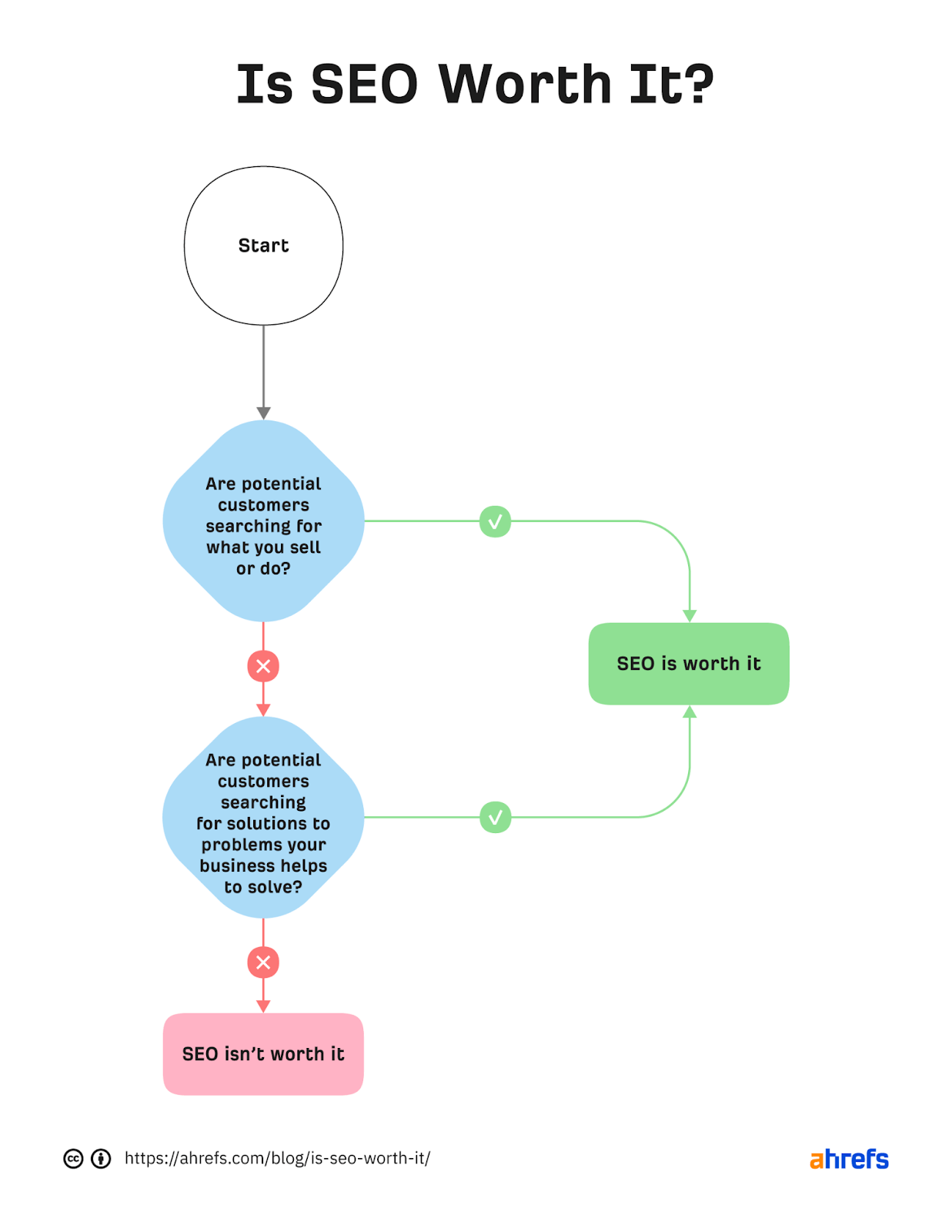
However, if the answer to all of them is “no,” then you may be better off with a different type of marketing.
Not sure how to answer those questions? Read on to learn more.
If you run a local business, then the answer to this question is almost certainly “yes”—at least statistically:
- 4 in 5 consumers use search engines to find local information (Google).
- 76% of people who search on their smartphones for something nearby visit a business within a day (Google).
- 28% of searches for something nearby result in a purchase (Google).
In short, if you’re not showing up for relevant local queries, then you’re leaving money on the table. Local SEO helps with this, and we have a full guide on that.
But if you have an e-commerce, SaaS, or small online business, this may not be the case, especially if you’re doing something completely new or really niche.
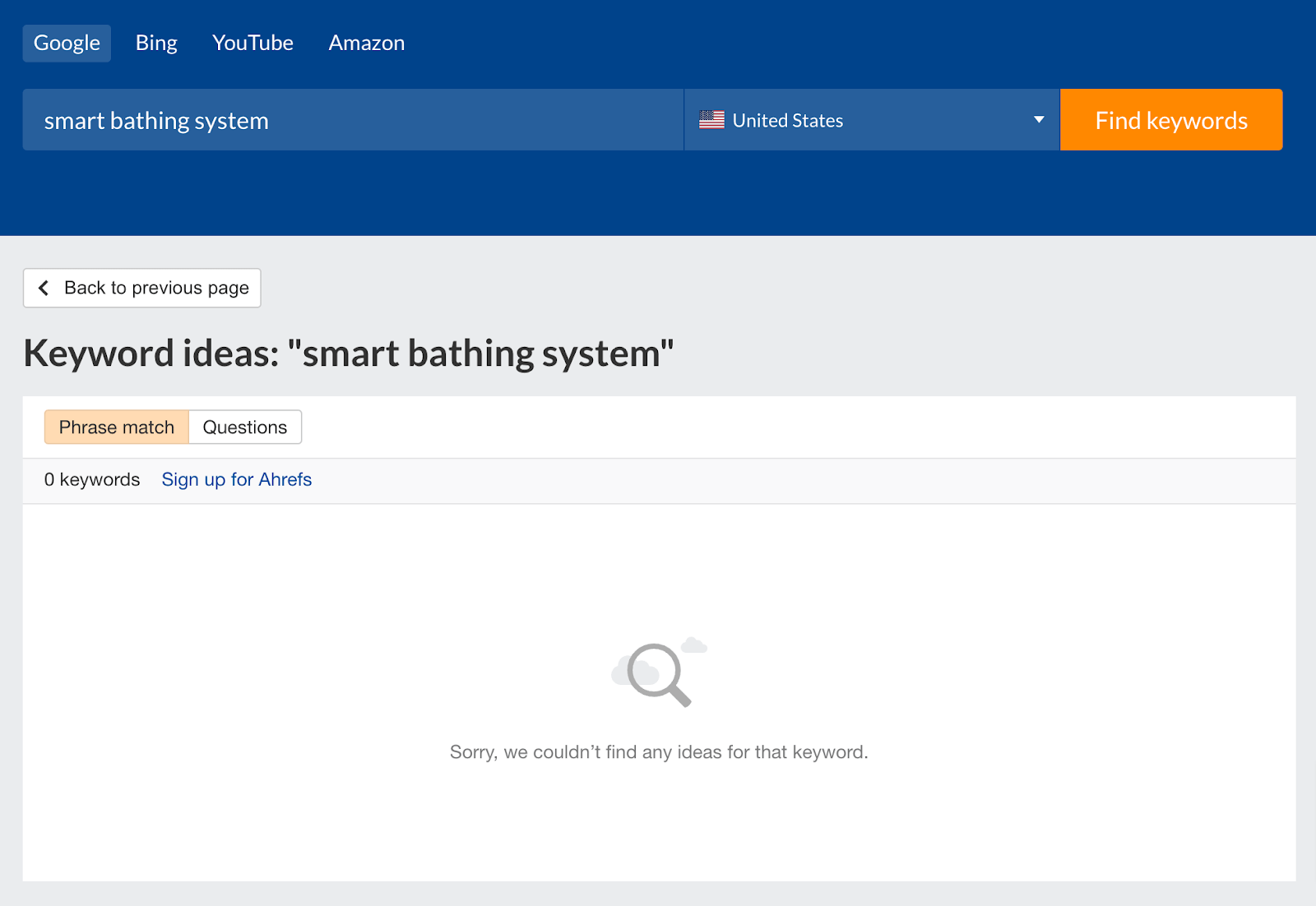
Companies producing smart bathing systems (or smart baths) like Kohler probably need to invest in other types of marketing before people really catch up with their technology. Right now, everyone is just taking a normal bath. Data via Ahrefs’ free keyword generator.
So the first step is to plug what you do or sell into a keyword research tool and see if there’s any search volume.
For example, if we plug “commissary kitchen” into Ahrefs’ free keyword generator, we see that it has an estimated monthly search volume of 5,900 in the U.S. alone. This answers our question: People are searching for what we do.
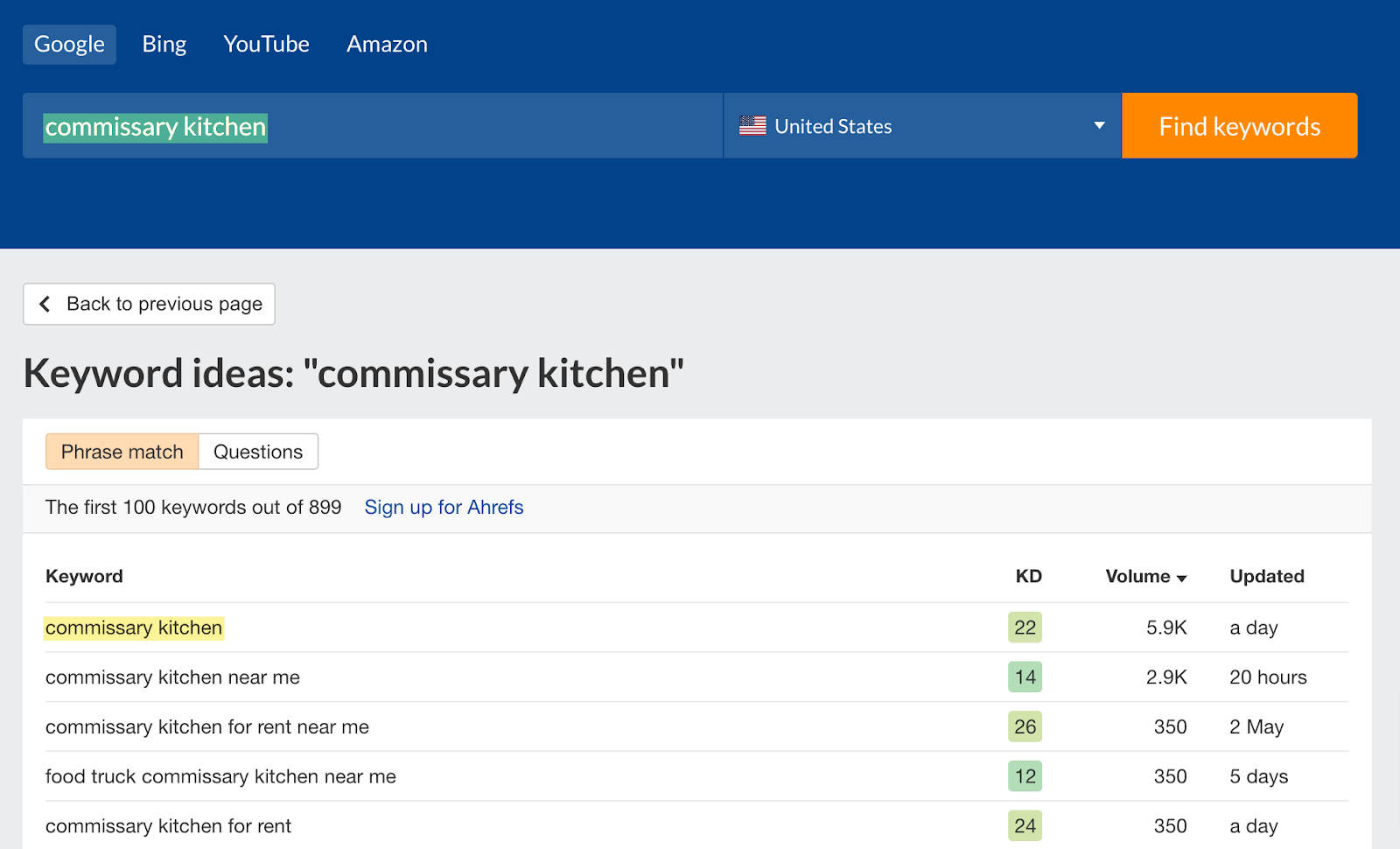
But even if this isn’t the case, people may be searching for individual products or services you offer. So it’s worth plugging some of these into a keyword tool as well to see if people are searching for them. If that’s not the case, don’t worry. SEO may still be worthwhile—and that brings us to question #2.
Even if people aren’t searching directly for what you do or sell, they may be searching for problems to solutions you can help with. And there’s quite a high chance for this given that:
- 68% of online experiences begin with a search engine (BrightEdge).
- 71% of B2B researchers start their research with a generic search instead of queries containing a brand name or product (Google).
- 53% of shoppers say they always do research before a purchase to ensure they are making the best possible choice (Google).
For example, we have a tool called Content Explorer that’s basically a searchable database of billions of webpages. Virtually nobody is searching for it on Google. However, they’re searching for problems the tool helps to solve, such as link prospecting or finding content ideas.
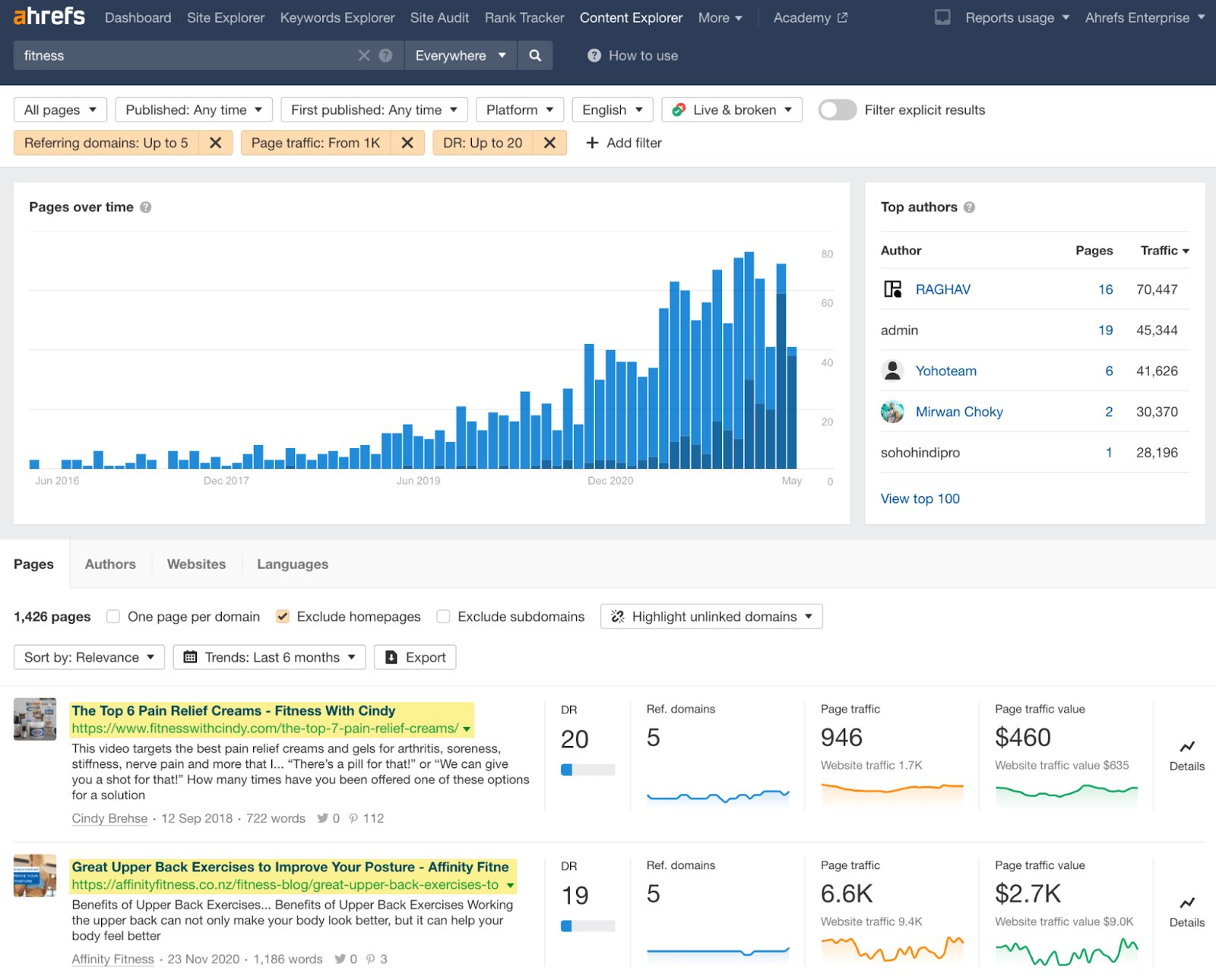
Topics with high traffic potential and low competition. Results are in English and show sites that a new site can compete with. Go.
SEO is often worthwhile in this case because you can create content that teaches searchers how to solve their problems with the help of your product or service. This is precisely what we do at Ahrefs.
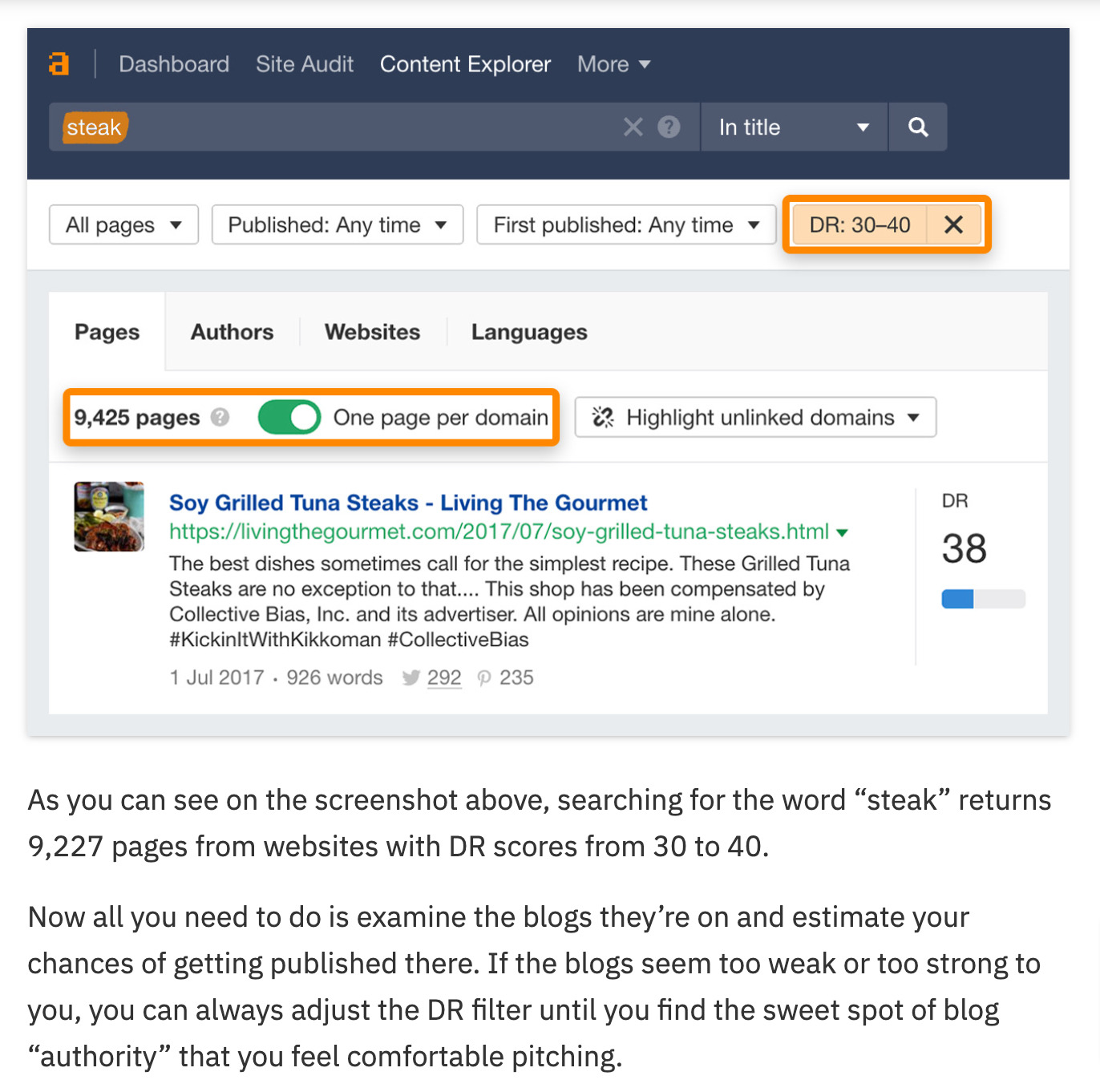
One of our blog posts explaining a solution with the use of Content Explorer. This article gets an estimated 1.3K monthly organic traffic.
To see if people are searching for problems you can help solve, just use a keyword research tool as we did in question #1. This time, insert the name of the problem your product or service can solve. Also, see the Questions tab to look for relevant questions.
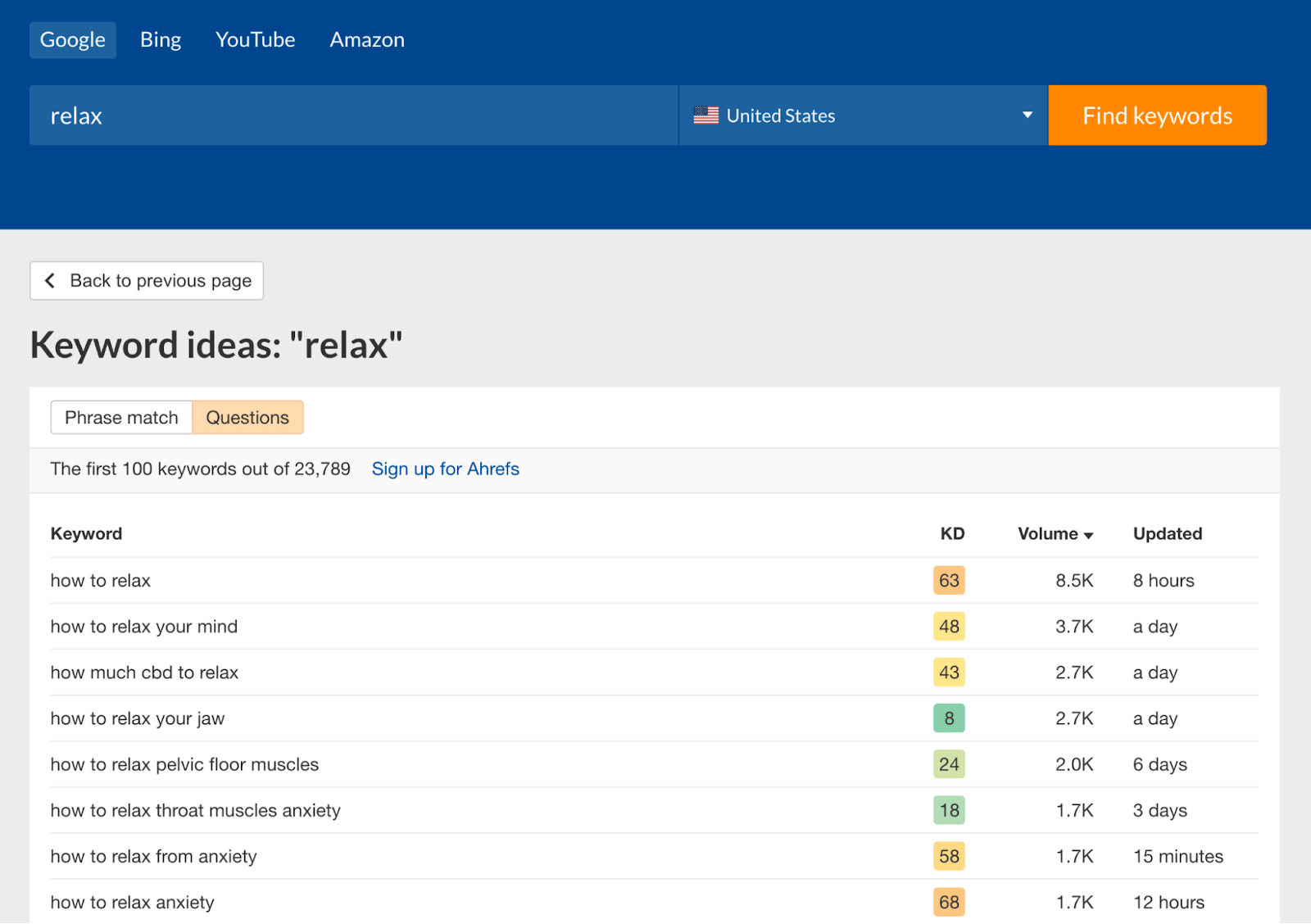
Let’s say somebody invented a brilliant relaxation program/product and gives it a completely new name. That name surely won’t have any search volume. But as you can see, the problem of not experiencing effective relaxation does. So that person can create content answering questions about relaxation and generate awareness about their relaxation program.
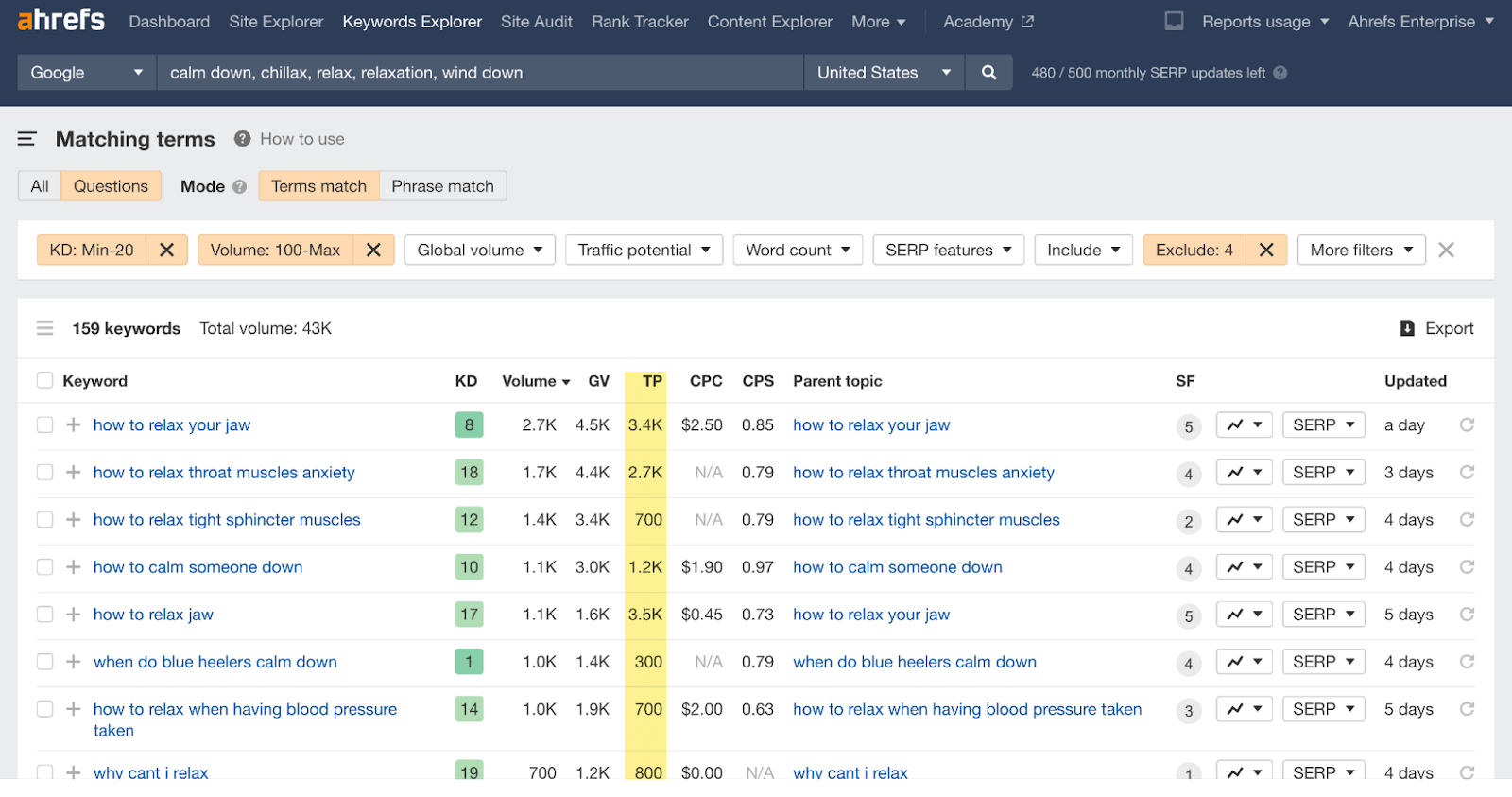
A small sample from our Keywords Explorer. Here, you can see similar research for relaxation-related questions, but we’ve also used more seed keywords and advanced filters to show low-competition keywords with considerable traffic. Also, you can see the Traffic Potential (TP) of those keywords—more search volume doesn’t always translate to more traffic.
So if you answer “yes” to question #1 and/or question #2, then SEO is worth it in theory. But there’s one more thing to it: the cost/effort may outweigh the reward.
Basically, you have three options for investing in SEO:
- Hiring an agency/consultancy — Probably the most expensive option, costing from $99 (agencies) to $171/hour (consultancies). In many cases, you will also need to pay a monthly retainer. On the upside, you don’t have to learn SEO, and you can start fast.
- Building a team or outsourcing to freelancers —Somewhat expensive. On average, SEO freelancers cost $71.59/hour, and an in-house SEO specialist costs $71K/year (in the U.S.). You need to know what you’re doing, and you need to invest time in the hiring and onboarding process.
- Doing it yourself — The cheapest option. But it takes time to learn the ropes.
There may be a fourth “hybrid” option: hiring an agency/freelancer for some time to see the results. Then you may want to build an in-house SEO team or even learn SEO yourself.
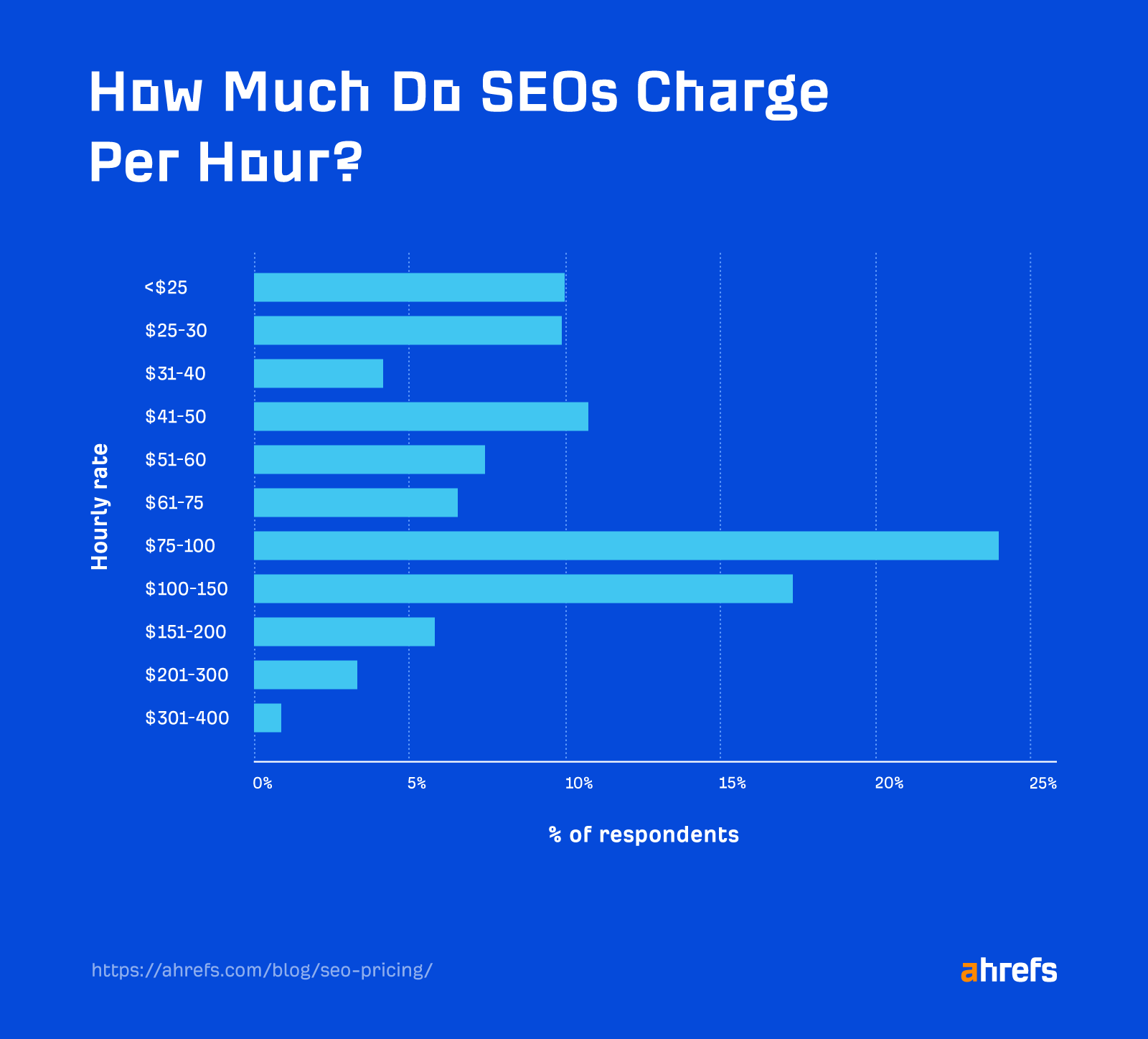
If you decide to hire an SEO agency or a consultant, ask them if they think SEO will be worthwhile for you. A good agency will give you an honest answer and explain why it’s the case one way or another.
And if you’re interested in the do-it-yourself path, start from our introduction to SEO.
Final thoughts
So if you’re looking to boost your business with SEO, the absolute number #1 consideration is to determine whether queries related to your business get any search demand. After all, SEO is all about channeling a part of that search demand to your website.
Finally, the answer provided in this article is the most straightforward and quickest response to your question as possible. However, it is not a thorough analysis of your business and its market environment. Treat this as the first step in your SEO journey, and consider creating or consulting a professional to devise a tailored SEO strategy for you.
Got questions or comments? Ping me on X or LinkedIn.




